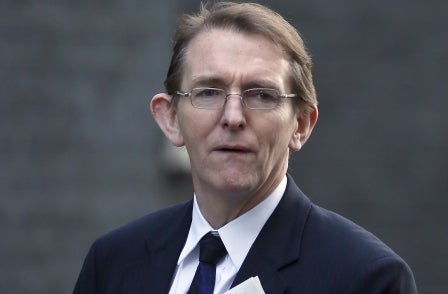
Tony Gallagher fears the Bribery Act would have prevented The Daily Telegraph from exposing the MPs’ expenses scandal.
Gallagher, making his first public appearance since taking over as editor of The Sun, also said it is becoming “much, much harder to hold power to account”.
Speaking at an Exaro debate last night, called “Did media ever hold power to account?”, Gallagher also:
- Set out his plans to expand the strength of The Sun’s investigations
- Spoke of the “scandal” of Government attempts to weaken Freedom of Information
- Told how MPs remain “bitter” over the Telegraph’s expenses revelations
- Claimed this motivated many to vote for the Royal Charter on press regulation
- And condemned the fact police-press relations have “almost completely collapsed”.
On the difficulties the media has in holding power to account nowadays, Gallagher said: “Things like the Bribery Act have made things much, much harder for journalists.
“I wonder now, I fear the answer would be a negative, that the Telegraph might not buy the disk of MPs’ expenses six years on, because the terms of the Bribery Act would expose you to that, which as I understand it has no exclusion for journalists.”
He said that while the expenses work was commended by the journalism industry, it was met with “great horror” from the world of politics.
Gallagher added: “It’s worth pointing out that MPs feel very bitterly, still to this day, about the fact that they were in many cases exposed or taken down by The Daily Telegraph.
“I think it’s interesting that when the Royal Charter [on press regulation] came before the House of Commons a couple of years ago all bar a tiny handful of MPs voted in favour of the Royal Charter, and I’m absolutely certain that large numbers of those MPs were motivated by pure hatred of the media because of what it had done to them over the business of MPs’ expenses.”
Between leaving The Daily Telegraph in January 2014 and joining The Sun this month, Gallagher was deputy editor of the Daily Mail.
He praised the Mail’s recent investment in an investigative team, highlighting its work in exposing wrongdoing by charities and “misuse of personal data”.
Asked by Exaro editor Mark Watts what he plans to change at The Sun, Gallagher said he would like to focus on “building up the investigative power of the paper”.
“It’s obvious to me… that the area of newspaper investigations is wildly underused and needs to come front and centre to national newspapers if they’re to be relevant at all in the modern age,” he said.
“Bear in mind there’s so much information out there now which is already available for people who need to find a unique way of capturing those readers.
“And I think the Daily Mail’s investigations unit over the past eight or nine months has really led the way in showing how you can brilliantly expose the misuse of your personal data, the way that charities are misbehaving…”
On changes proposed by the Government to the Freedom of Information Act, Gallagher said: “Freedom of Information is under assault as never before. It’s been a fantastic tool for rooting out corruption and exposing the excesses of central and local government…
“And I think it’s pretty obvious that the Government is determined to try and rein in Freedom of Information. It’s pretty clear to me that they’ve rigged this panel into looking at it and it’s going to be much harder in future for journalists to do their job.”
He said it was a “scandal” and “absolutely disgraceful that the Government is throwing its weight behind the idea that FoI should be reduced”.
But he said the Government and ministers are a “side show": “The people that are really behind this, and the people that hate this even more, is the Civil Service machine.
“So I think it’s fair to say that the far more guilty party in this would be the Cabinet Secretary Jeremy Heywood.”
Gallagher also condemned the fact that “the relationship between the police and media has almost completely collapsed”.
He said: “I think you talk to any reporter, local or national, now and it’s almost impossible to have any kind of a dialogue with police officers that helps both your reporter and helps the news organisation.
“And the police’s refusal to reveal information, couched usually in Leveson terms, is one of the scandals of the age. Their refusal to name people or to reveal [details of] raids they’ve carried out, or to retreat behind the fact that they are not subject to FoI, is really quite scandalous.
“And I do not believe that the public is better informed as a result of the guidelines that ACPO released which severely truncated the work that journalists and police could do together.
“I don’t believe you’ll find a single crime correspondent who’ll disagree with me on that score.”
Email pged@pressgazette.co.uk to point out mistakes, provide story tips or send in a letter for publication on our "Letters Page" blog
